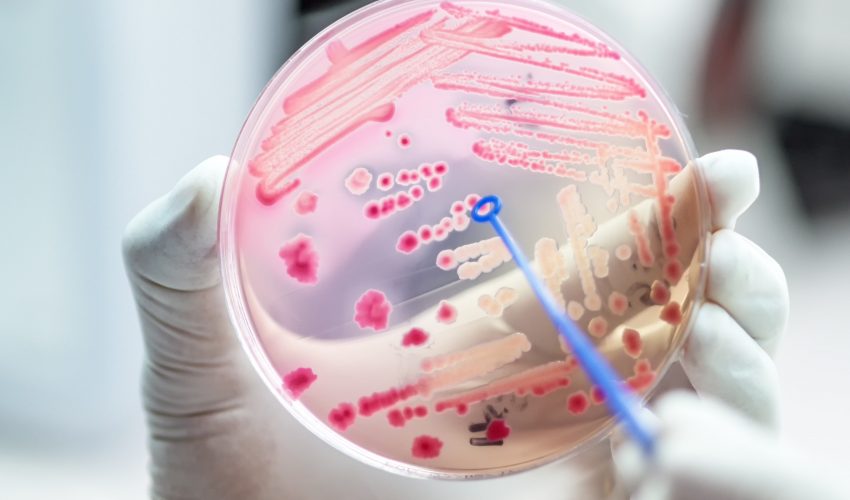Post Views: 3,467
Views No Comments
There is one threat to humanity that poses a great risk if left unchecked: antibiotic resistance. Bacteria and viruses are always evolving, which is why there are a wide variety of diseases that are impossible to vaccinate against. However, whenever someone falls ill to one of these microorganisms, the very first line of treatment after identifying the invading bacteria is to use antibiotics. Through countless years of antibiotic use in multiple generations, these bacteria and viruses change and slowly become more resistant to the substances that, in years past, would easily destroy them.
Viruses are always evolving, changing their DNA in ways that allows them to fool immune systems and infect their hosts despite a similar virus having infected them in the past. However, more alarming than virus evolution is antibiotic resistance from bacteria. Since bacteria don’t evolve nor alter their genetic in the way viruses do, they need to adapt in other ways to survive. This adaptability translates into antibiotic resistance through time, which manifests as new resistance mechanisms that are spreading globally across new generations of bacteria and that are hindering our ability to treat common illnesses. Among some of the bacteria that are becoming antibiotic-resistant, and that pose a realistic threat in the near future, are the ones responsible for pneumonia, tuberculosis, blood poisoning, gonorrhea, and some foodborne diseases.
There is a very considerable chance that people who become afflicted with any of these diseases will have difficulty treating them with antibiotics. These complications lead, at the very least, to increased costs in many aspects, including longer hospital stays, and the necessity for other types of treatments. However, in its worst form, this conundrum leads to a much higher mortality rate as the bacteria responsible for the disease cannot be eliminated through traditional means. This problem poses a serious risk as hospitals and health centers must urgently change the way they treat these diseases.
The fault of this problem is—in no small part—due to the reckless misuse of antibiotics in a hospital or domestic setting. In other words, if we’re to surpass this obstacle unscathed, we need to change the ways in which we prescribe and use antibiotics. Even if we were to develop new drugs, we would eventually run into the same problem as bacteria will just adapt to the new medication. So, what should we do? Well, we must adopt certain measures to avoid antibiotic resistance, including encouraging prevention over treatment such as through regular hand washing, practicing safe sex, and practicing good food hygiene.
While the antibiotic resistance problem is likely to affect us all in a global fashion, it is most serious in places where antibiotics are sold and used without a prescription. Similarly, in underdeveloped countries where there are no clear treatment standards for some diseases, antibiotics are commonly prescribed by physicians and veterinarians, further exacerbating the issue.
At this rate, if we don’t take measures to prevent this issue, we will reach a time where common diseases and illnesses may, once again, start to kill.
While researchers are hard at work to develop alternative measures to treat bacterial infections, you can do your part to prevent antibiotic resistance.
For starters, you could adopt a habit of constantly washing and scrubbing your hands, especially after manipulating hazardous or dirty substances. Furthermore, it’s important to keep a clean work environment; if you work several hours a day on the same desk or office, it’s important to disinfect your work area to prevent any potential illnesses. However, if you DO get sick, refrain from using antibiotics unless your physician explicitly states it; not only can the misuse of these drugs exacerbate the antibiotic resistance problem, but they can also do more harm than good in the cases where the problem cannot be treated through these means.
For health professionals, these individuals can help promote awareness of the rising concerns of antibiotic resistance by informing their patients on the matter. Furthermore, they could also report any signs of antibiotic resistance to the respective surveillance teams, and practice the prescription of these drugs in accordance to current guidelines. Lastly, it’s also important to raise awareness of the importance of cleanliness and hygiene—both in the workplace and at home—in the prevention of diseases.
When even the most common infections—that are harmless for today’s standards—become antibiotic resistant, we will need to seek other, more expensive treatment options to survive their effects. These new treatments will lead to longer hospital stays, as well as a higher risk of mortality, increased health care costs, and a higher economic burden on individuals, families, and the state.
For all of the reasons we mentioned above, finding new methods for treating these illnesses, as well as promoting awareness of antibiotic resistance, are both necessary actions to prevent the longevity of our species.
Antibiotic resistance can pose a great threat if left unchecked. Learn how we, as nurses, can avoid it.

